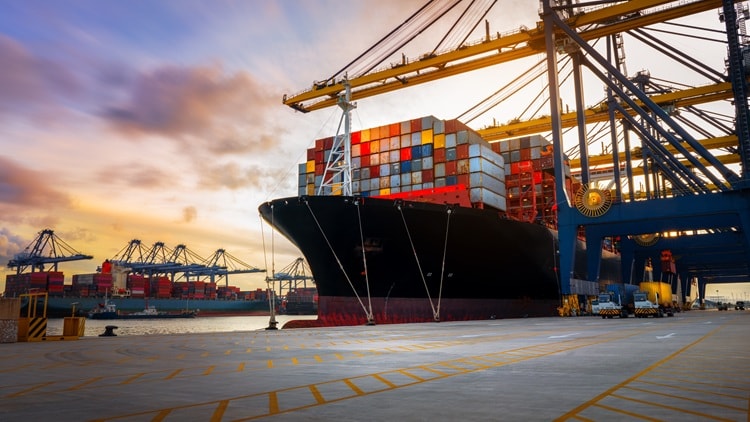Background
With continued developments in US trade policy, please see this week’s key updates in our latest round-up on tariffs, global tax and beyond.
The week in summary
Auto Sector Faces New Tariff Landscape Under President Trump Executive Order
US President Donald Trump signed an executive order last Friday 17 October, imposing a 25% tariff on imported medium- and heavy-duty trucks, effective November 1. However, vehicles traded under the United States-Mexico-Canada Agreement (USMCA) will be partially exempt, with tariffs applied only to non-American components.
It is unclear whether the trade deals agreed between the US and EU, and US and Japan, will ensure that affected vehicles from these territories will only be subject to the agreed 15% tariff.
In addition, President Trump is extending tariff relief for US automakers on imported auto parts. What was initially a short-term rebate will now continue through 2030. Under the revised policy, manufacturers will receive a rebate equivalent to 3.75% of the sales price of domestically assembled vehicles. This figure reflects the 25% import tax applied to parts that typically account for 15% of a vehicle’s sales price.
Buses and motorcoaches will face a separate 10% tariff. The new truck tariffs, targeting semi-trailers and large pickup trucks, are being implemented under Section 232 of the Trade Expansion Act of 1962, the same authority used earlier this year to levy duties on smaller automobiles.
These measures add to a growing list of sector-specific tariffs, including those on steel, aluminum, copper, and lumber. President Trump previously warned of the truck tariffs, citing the need to shield American manufacturers from "unfair outside competition." According to a White House fact sheet:
“President Trump is fortifying America's ability to manufacture medium- and heavy-duty trucks and essential parts, which is vital for America's military readiness, emergency response capabilities and critical infrastructure for economic activity,”
However, the American Trucking Association has criticised the decision, warning that the new duties could further increase costs in an industry already burdened by existing tariffs on steel and aluminum. The US Chamber of Commerce had previously urged President Trump to reconsider the proposed truck tariffs, emphasising that the top five sources of imports, Mexico, Canada, Japan, Germany, and Finland, are “all of which are allies or close partners of the United States posing no threat to US national security.”
US/Australia Trade Deal on Critical Minerals
On Monday, 20 October, the United States and Australia signed a new agreement aimed at strengthening supply chains for rare earths and other critical minerals, as part of ongoing efforts to reduce reliance on China. Australian Prime Minister Anthony Albanese said the deal would support a pipeline of A$13 billion (€8.5 billion) in “ready-to-go” projects to expand Australia’s mining and processing capacity.
According to the agreement’s framework, the two countries will jointly invest $1 billion in projects across the US and Australia over the next six months.
While cooperation on critical minerals dates back to former President Trump’s first term, Albanese said the latest deal marks a significant step forward: “This agreement takes our partnership to the next level.”
China currently accounts for around 70% of global rare earth mining and 90% of processing, dominating the supply of materials essential to products ranging from defense systems to semiconductors and electric vehicles. As such, US companies remain heavily reliant on these resources, leaving them exposed as China tightens export controls in response to new American tariffs and rising geopolitical tensions.
European Commission Urges US to Lift Steel-Based Product Tariffs
European Trade Commissioner Maroš Šefčovič announced last Tuesday that the European Commission is urging the United States to remove tariffs on products derived from steel, as Brussels seeks to advance elements of the EU-US tariff agreement that have yet to be implemented.
Under the framework of the joint agreement, both sides committed to exploring mechanisms to shield their respective markets from global overcapacity in steel, aluminium, and related derivative products. One proposed measure involves replacing existing US tariffs, currently as high as 50%, with tariff-free or low-tariff quotas.
Šefčovič stated that the European Union has taken steps to fulfill its obligations under the agreement, including a proposal to raise its own steel tariffs to 50%, reduce current import quotas by half, and enhance transparency regarding the origin of steel products. The proposal, which remains subject to approval by EU member states and the European Parliament, aligns closely with the US approach to safeguarding its domestic steel industry. Šefčovič said during a press conference following a meeting of EU trade ministers in Denmark;
“Once we are protecting our markets in a very similar way, it's time to discuss the steel derivatives, because I think that we should stop the practice where we have to calculate how much steel is in the fridge or dishwasher.”
President Trump Acknowledges 100% Tariff on China Is Unsustainable Amid Trade Dispute
President Trump acknowledged that his proposed 100% tariff on Chinese imports is “not sustainable”, but insisted that Beijing’s actions left him no choice, pointing to China’s tightening grip on rare earth exports as the catalyst for the latest breakdown in trade negotiations.
On 17 October, in an interview aired on Fox Business Network, President Trump was asked whether such a steep tariff could be maintained without harming the US economy. He responded candidly: “It’s not sustainable, but that’s what the number is.” China currently dominates the global supply of these elements, giving it significant leverage in tech-related trade.
Last week, President Trump announced sweeping new trade measures, including a 100% tariff on all Chinese goods bound for the US, and fresh export controls targeting “any and all critical software”, set to take effect by 1 November, just nine days before existing tariff relief was due to expire.
Despite the escalating tensions, President Trump confirmed he would meet with Chinese President Xi Jinping in South Korea in two weeks (a summit he had previously cast doubt on). He also expressed a measure of respect for the Chinese leader, saying,
“I think we’re going to be fine with China, but we have to have a fair deal. It’s got to be fair.”
IMF Tariff Report
The global economy has shown “unexpected resilience” despite US tariffs, the International Monetary Fund (IMF) said, but warned the full impact is still unfolding and the outlook remains “dim”.
In its latest World Economic Outlook, released ahead of its annual meetings in Washington, the IMF raised its 2025 global growth forecast slightly to 3.2%, up from 3% in July. The 2026 forecast remains at 3.1%.
Inflation is “stabilising” above central bank targets in several countries, but expectations remain fragile, the IMF warned,
“worsening the trade-offs for monetary policymakers as uncertainty and tariffs start weighing on activity.”
It added that rising tariffs are weakening global demand, “with profound implications for several large export-oriented economies,” while trade policy uncertainty is “dampening firms’ appetite for investment.”
“As the global economy becomes increasingly fragmented, risks to the outlook are rising,” the institute noted, adding that efforts to sustain activity, such as trade diversion and rerouting, come with significant costs.
German Exports Dip in August as US Demand Slows
Germany’s exports unexpectedly declined in August, driven by a sharp drop in shipments to the United States amid new US tariffs on European goods. According to the federal statistics office, exports from Europe’s largest economy fell by 0.5% from July, defying expectations of a 0.3% increase. Exports to the US dropped 2.5% month-on-month and were down 20.1% compared to August 2024.
“The flow of goods to the U.S. is likely to remain weak,” said Ralph Solveen, senior economist at Commerzbank, citing the impact of higher tariffs and a stronger euro.
The decline follows the US administration’s decision to impose a 15% tariff on most EU imports under a July agreement aimed at avoiding a broader trade conflict. The US was Germany’s top trading partner in 2024, with bilateral trade equalling €253 billion.
US/Colombia Tensions Rise as Trump Announces Tariffs and Aid Suspension
President Trump has announced plans to increase tariffs on Colombian imports and suspend financial aid to the country, citing concerns over drug trafficking and recent military actions in the Caribbean. Speaking to reporters aboard Air Force One, President Trump stated:
“I’m stopping all payments to Colombia. They don’t have a fight against drugs - they make drugs.”
The announcement follows a US military strike on a vessel allegedly linked to a Colombian rebel group. US Secretary of War Pete Hegseth said the vessel was associated with the National Liberation Army (ELN), and was targeted as part of ongoing efforts to disrupt drug trafficking routes.
Currently, Colombian goods face a 10% tariff when entering the US, a rate consistent with baseline tariffs imposed on several countries. It remains unclear how much higher the new tariffs will be or which sectors will be affected.
We’re here to help you
Keeping up to date with US trade policies, trade agreements and new and existing tariff reviews which may lead to further tariff measures is crucial to assessing the risk to your supply chain and the impact these tariffs may have. Understanding your product portfolio and the impact that tariffs may have on your imports is an important first step. We are here to support your business with this analysis and navigating these choppy waters.
Specialist Tax Services
Helping businesses navigate risks and realise opportunities.
Contact us












Menu